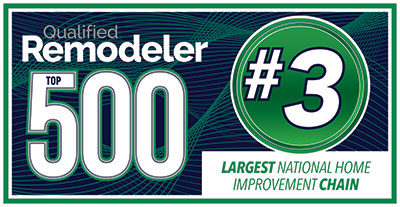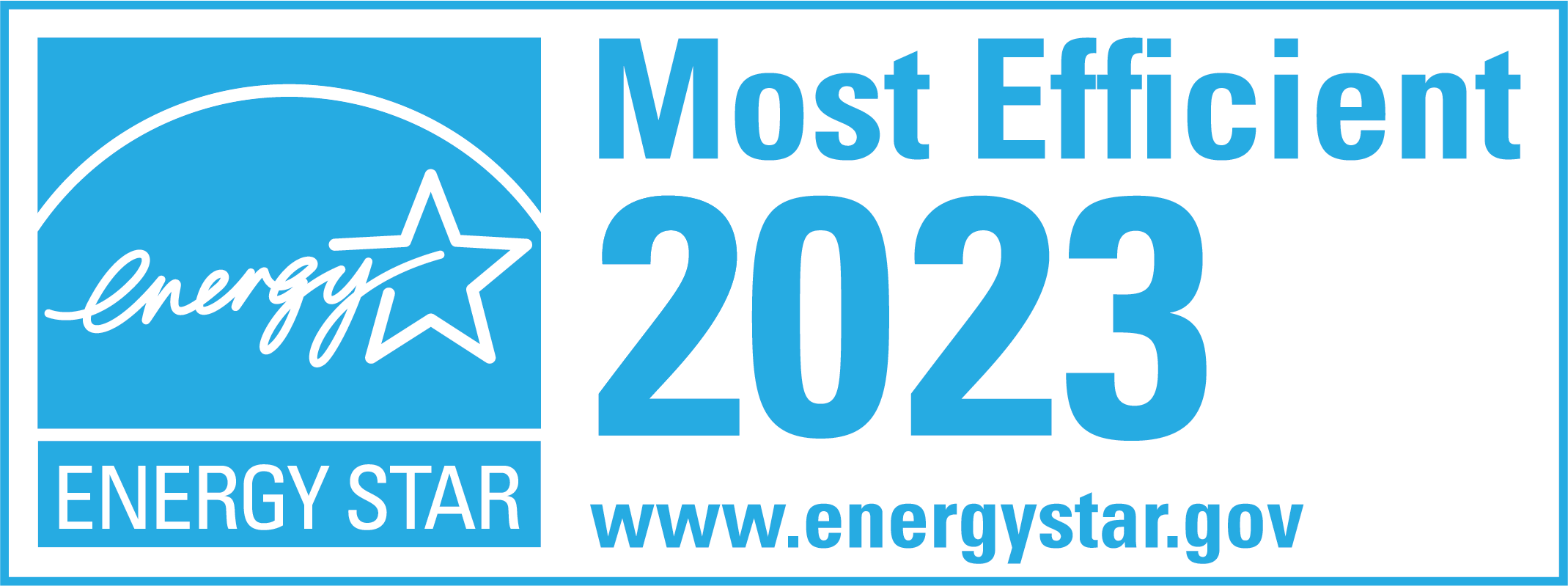Are Aluminum Windows Energy Efficient?
If you’re considering replacing your windows, one of the first questions you may have is whether or not aluminum windows are energy efficient. In this article, we’ll look closer at the pros and cons of aluminum windows and explore their thermal performance, insulation properties, air infiltration, and how they compare to other window materials. We’ll also discuss some ways to improve the energy efficiency of aluminum windows, so you can make an informed decision about your window replacement options.
Understanding aluminum windows
Before diving into aluminum windows’ energy efficiency, let’s take a moment to understand what they are. Aluminum windows are lightweight, strong metal resistant to rust, insects, and fire. Their sleek, clean lines are great for modern and contemporary homes.
What are aluminum windows?
Aluminum windows are made of extruded aluminum frames that are filled with glass. They can come in various styles, including casement, awning, sliding, and fixed. They are known for their durability and low maintenance.
Aluminum windows are versatile and can be customized to fit any size or shape of the window opening. This makes them popular for architects and homeowners who want unique and modern designs.
Benefits of aluminum windows
One of the biggest benefits is their strength and durability. They are moisture-resistant, making them ideal for areas with high humidity or near bodies of water. They are also great for areas prone to wildfires since aluminum is non-combustible. Additionally, they are low maintenance and easy to clean.
They are also environmentally friendly. They are 100% recyclable, which means they can be reused and repurposed without harming the environment. This makes them a sustainable choice for homeowners who want to reduce their carbon footprint.
Drawbacks
On the downside, they are significantly less energy efficient than other window materials, such as vinyl or wood. Since aluminum is a metal, it conducts heat and cold easily, which can result in higher energy bills and less comfort inside your home.
However, there are ways to improve the energy efficiency. One option is to choose windows with thermal breaks, which are insulating materials placed between the interior and exterior of the frame. Another option is to choose high-performance glass, such as Low-E glass, which can help reduce heat transfer and improve energy efficiency.
Despite their lower energy efficiency, aluminum windows remain popular for their durability, versatility, and modern design. Proper maintenance and upgrades can provide a long-lasting and sustainable solution for your home.
Energy efficiency of aluminum windows
Aluminum windows have become popular among homeowners due to their sleek and modern appearance. However, when it comes to energy efficiency, there are a few factors to consider that may impact your decision.
Thermal performance
Thermal performance refers to how well a window can resist heat flow. Aluminum is not a good insulator, allowing heat to move easily through the frame. This means that in the summer, the heat from the sun can easily pass through the aluminum frame and into your home. The same is true in the winter when the heat inside your home can escape through the window frame.
However, there are ways to improve the thermal performance of aluminum windows. One option is to choose windows with thermal breaks, insulating materials placed between the frame’s interior and exterior. This can significantly reduce the heat transferred through the frame, making your home more energy-efficient.
Insulation properties
Another factor affecting aluminum windows’ energy efficiency is their insulation properties. While a double-glazed aluminum window can be more energy-efficient than a single-glazed aluminum window, aluminum is still not as good an insulator as other materials such as vinyl or wood.
Additionally, the type of glass used in the window can impact its insulation properties. Low-emissivity (Low-e) glass is designed to reflect heat back into your home, which can help to keep it warmer in the winter and cooler in the summer.
Air leakage and infiltration
Air leakage and infiltration are other factors to consider when looking at the energy efficiency of windows. Since aluminum windows are typically sold with single-pane glass, they are more likely to allow air infiltration than windows with double-pane or triple-pane glass.
However, there are ways to reduce air infiltration in aluminum windows. One option is to choose windows with multiple panes of glass, which can help to create a barrier against outside air. Additionally, weatherstripping can be added to the window frame to help seal any gaps or cracks that may be present.
Maintenance and durability
Finally, it’s important to consider the maintenance and durability of aluminum windows when evaluating their energy efficiency. While aluminum is a durable material that can withstand harsh weather conditions, it is also prone to corrosion.
To ensure that your aluminum windows remain energy-efficient, it’s important to regularly clean and maintain them. This may include lubricating the tracks and hinges, replacing any damaged weatherstripping, and inspecting the frame for signs of corrosion or damage.
Overall, while aluminum windows may not be the most energy-efficient option on the market, there are ways to improve their performance and reduce energy costs. Considering factors such as thermal performance, insulation properties, air infiltration, and maintenance, you can decide whether aluminum windows are right for your home.
Comparing aluminum windows to other window materials
When it comes to choosing the right windows for your home, there are many factors to consider. One of the most important factors is energy efficiency. While aluminum windows have been known to be less energy-efficient than other window materials, they have come a long way in recent years. Let’s look at how aluminum windows stack against vinyl, wood, and fiberglass.
Aluminum vs. vinyl windows
While aluminum windows are more durable than vinyl ones, vinyl windows are more energy-efficient. Vinyl frames can be filled with insulation and have lower air infiltration rates than aluminum frames. Additionally, vinyl windows are less expensive than aluminum windows. However, it’s important to note that aluminum windows are more resistant to extreme weather conditions and are less likely to warp or crack over time.
Another factor to consider when comparing aluminum and vinyl windows is their environmental impact. Aluminum is highly recyclable, making it more eco-friendly than vinyl. In fact, aluminum windows can be recycled indefinitely without losing their quality or strength.
Aluminum vs. wood windows
Wood windows are highly energy efficient but more expensive than aluminum ones. The maintenance and upkeep required for wood windows are other factors to consider. While wood windows may last for decades with proper care and maintenance, aluminum windows require less maintenance and can last just as long.
One advantage of wood windows is their aesthetic appeal. Wood frames offer a classic, timeless look that many homeowners find appealing. Additionally, wood is a renewable resource, making it an eco-friendly option for those concerned about its environmental impact.
Aluminum vs. fiberglass windows
Fiberglass windows are highly energy efficient and are a great option for those looking for a low-maintenance alternative to wood windows. They are typically more expensive than aluminum windows but can offer higher energy efficiency. Fiberglass frames are also very strong and durable, making them a good choice for areas with extreme weather conditions.
However, fiberglass windows are not as widely available as aluminum ones, making them more difficult to find and install. Additionally, fiberglass is not as recyclable as aluminum, which can be a concern for those looking to reduce their environmental impact.
Overall, when it comes to choosing the right windows for your home, it’s important to consider all of the factors involved. While aluminum windows may not be the most energy-efficient option, they offer many advantages over other materials. By taking the time to weigh the pros and cons of each option, you can make an informed decision that meets your needs and fits your budget.
Improving the energy efficiency of aluminum windows
Aluminum windows are popular for their sleek and modern look but are not always the most energy-efficient option. However, there are several ways to improve the energy efficiency of your aluminum windows.
Thermally broken aluminum windows
Thermally broken aluminum windows are a great option for those who want the durability and style of aluminum but also want to improve their energy efficiency. These windows have a non-conductive material, such as fiberglass or polyurethane, between the aluminum frames. This insulation helps to reduce heat loss and heat gain, making them more energy-efficient than standard aluminum windows.
In addition to their energy efficiency benefits, they have other advantages. They are highly durable and require minimal maintenance, making them a great long-term investment for your home.
Double or triple glazing
Another way to improve energy efficiency is by adding double or triple glazing. This involves adding one or two additional panes of glass to the window. The additional glass layers help reduce heat loss and gain, making the window more energy-efficient.
Double or triple glazing can be more expensive than single-pane glass, but it can also provide significant energy savings in the long run. In addition to their energy efficiency benefits, double or triple-glazed windows offer improved sound insulation and increased security.
Proper installation and sealing
Properly installing and sealing is crucial for their energy efficiency. Loose or improper installation can result in air leaks, reducing the effectiveness of your windows. Ensure your windows are sealed correctly and installed by a professional to ensure maximum energy efficiency.
In addition to proper installation, regular maintenance can also help to improve their energy efficiency. Keep the frames and tracks clean and free from debris, and ensure the weatherstripping is in good condition to prevent air leaks.
Following these tips can improve energy efficiency and enjoy a more comfortable and energy-efficient home.
Conclusion
In conclusion, while they may not be the most energy-efficient option on the market, they offer various benefits in terms of durability, low maintenance, and strength. Aluminum windows can be more energy-efficient with the right enhancements, such as thermally broken frames and double or triple glazing. Be sure to weigh the pros and cons carefully as you evaluate your window replacement options.
However, we don’t offer wood windows at Window Depot USA of Dallas, Texas. We sell and install premium vinyl windows because we believe they offer the most value of any material. Call us at 214-399-9592 for pricing and availability.






